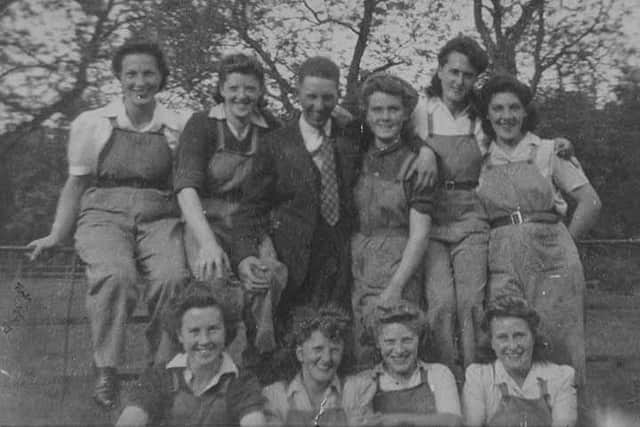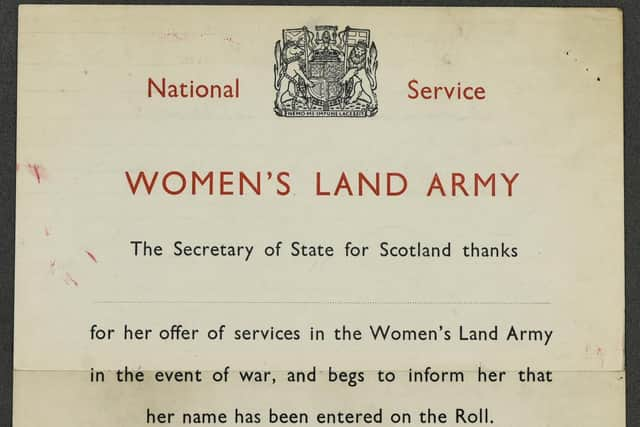Scotland's 'Land Girls': Records reveal stories of hard work, skill and fighting sexism in the field during World War Two
The lives of thousands of Scotswomen who kept the land turning and the nation fed and warm during the Second World War are being illuminated as records emerge from the archives more than 100 years after their birth.
Hand-written index cards and service records for the Scottish Women’s Land Army and the Women’s Timber Corp have been released by National Records Scotland. They detail the recruits, from all walks of life, who answered the recruitment call that “every woman who joins the Women’s Land Army will take a soldier’s place at war”.
Advertisement
Hide AdAdvertisement
Hide AdDispatched to forests and farms across the country, some women reportedly met hostile attitudes from farmers whose scepticism to the new female recruits was met with the abilities of women such as Betty White, of Dunbar – one of the first women to sign up to the SWLA after it was formed in January 1939, who was named a Champion Plough-Girl of Scotland.


Jessica Evershed, archivist at National Records of Scotland, said: "Betty Reid was something of a pin-up for the SWLA. A skilled ploughwoman, Reid starred in the Ministry of Information propaganda film entitled ‘Land Girl’ made in 1942.
"Made in Kirkcudbrightshire, the film attempted to address the prejudice women of the SWLA faced, drive recruitment and boost morale. The film depicts Reid giving a faultless display of ploughing and overcoming the sexist attitudes of a belittling local farmer.”
The first incarnation of the Scottish Women’s Land Army – originally named Women National Service Volunteers in Scotland – came about in January 1917, as a consequence of U-boats sinking ships carrying food supplies to Britain and the absence of male workers following enforced conscription in 1916.
In 1919, the organisation became known as the Scottish Women’s Land Army and was reformed in 1939 to establish an agricultural labour force at the start of the Second World War. It had around 8,500 volunteers at its peak in 1943, with women working on average 48 hours a week for 38 shillings.


Meanwhile, the Women’s Timber Corps (WTC) was established in May 1942 to process home grown timber and had up to 2,000 members, many who lived in hutted camps deep in the woods.
Ms Evershed said: “The work of the WTC was considered far more physical and strenuous than that of the SWLA. Their tools were axes and chain saws and many of the workers succumbed to the physicality of the work, resigning on medical grounds.”
The records are now online to search at the ScotlandsPeople genealogy website.
Advertisement
Hide AdAdvertisement
Hide AdMs Evershed added: “These records are an excellent historical resource for researchers piecing together details of these women’s lives. The Scottish Women’s Land Army and Timber Corps was critical during a time of desperate crisis, helping to produce food and timber.
“Putting these records online allows people all over the world to research their relatives, or to just investigate the history of the famous ‘Land Girls’ for themselves.”
Comments
Want to join the conversation? Please or to comment on this article.